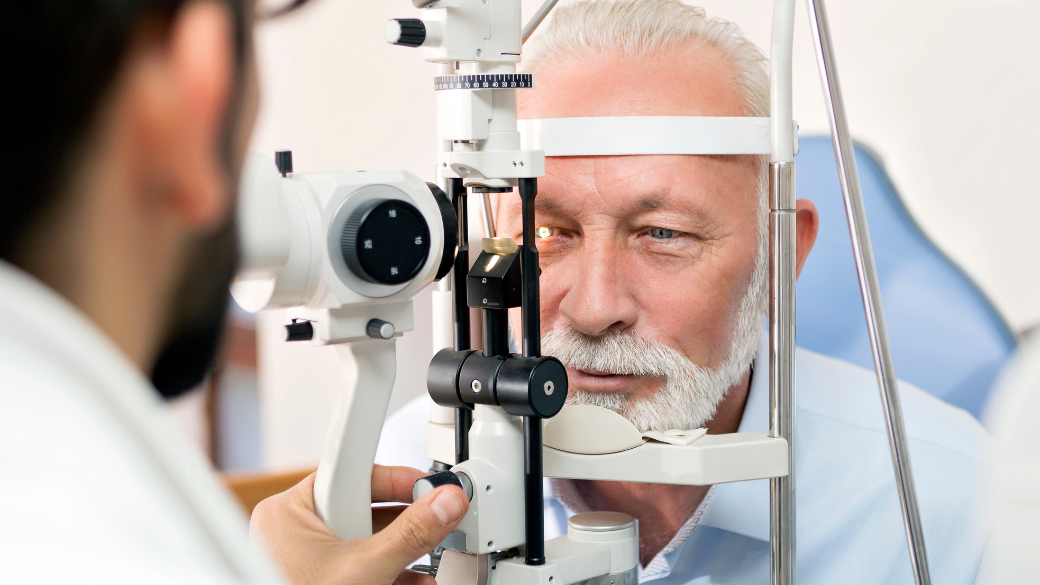
19 Jan Understanding Glaucoma during Glaucoma Awareness Month
January reminds us that it’s time to shine a spotlight on an eye condition that affects millions of people worldwide – Glaucoma. January is designated as Glaucoma Awareness Month, and as your trusted eye care providers, we believe it’s crucial to raise awareness about this silent but sight-stealing disease. In this blog article, we will delve into what glaucoma is, its risk factors, and how you can protect your vision.
What is Glaucoma?
Glaucoma is not just one eye disease but a group of eye conditions that can damage the optic nerve. The optic nerve is essential for good vision, as it transmits visual information from the eye to the brain. When left untreated, glaucoma can result in irreversible vision loss. It is often referred to as the “silent thief of sight” because it can progress slowly, with no noticeable symptoms until it’s too late.
Types of Glaucoma
There are several types of glaucoma, with the two most common being:
a) Open-Angle Glaucoma: This is the most common type and usually develops slowly over time. It occurs when the drainage canals in the eye become clogged, leading to increased eye pressure.
b) Angle-Closure Glaucoma: This type is less common but more severe. It happens when the iris (the colored part of the eye) is too close to the drainage angle in the eye. This can cause a sudden increase in eye pressure, leading to a medical emergency.
Glaucoma Risk Factors
While glaucoma can affect anyone, there are certain risk factors that can increase your chances of developing the disease. These include:
- Age: Glaucoma is more common in individuals over 60.
- Family History: If you have a family member with glaucoma, your risk is higher.
- Race: African Americans, Hispanics, and Asians have a higher risk of developing certain types of glaucoma.
- High Eye Pressure: Elevated intraocular pressure (IOP) is a significant risk factor.
- Thin Corneas: Thinner corneas are associated with an increased risk of glaucoma.
- Medical Conditions: Conditions like diabetes, high blood pressure, and heart disease can increase your risk.
Glaucoma Detection and Diagnosis
Early detection is key to managing glaucoma and preventing vision loss. Regular eye exams are crucial, as they allow your eye doctor to measure your intraocular pressure, examine the optic nerve, and check your peripheral vision. If glaucoma is suspected, additional tests such as optical coherence tomography (OCT) and visual field testing may be performed to confirm the diagnosis.
Glaucoma Treatment and Management
If diagnosed with glaucoma, there are various treatment options available to manage the condition and slow its progression. These may include:
- Prescription Eye Drops: These can help lower eye pressure.
- Oral Medications: In some cases, oral medications may be prescribed.
- Laser Therapy: Laser procedures can improve drainage in the eye.
- Surgery: In advanced cases, surgery may be necessary to create a new drainage channel.
Glaucoma Prevention
While some risk factors for glaucoma cannot be changed, there are steps you can take to reduce your risk and protect your vision:
- Regular Eye Exams: Routine eye exams can detect glaucoma early when it’s most treatable.
- Follow Treatment Plans: If diagnosed with glaucoma, follow your eye doctor’s treatment plan diligently.
- Protect Your Eyes: Use protective eyewear when participating in sports or activities that could lead to eye injury.
- Maintain a Healthy Lifestyle: Manage conditions like diabetes and high blood pressure, as they can increase glaucoma risk.
Glaucoma is a serious eye condition that requires attention and awareness. At Abell Eyes, our mission is to provide you with the best care possible and to ensure that you are well informed about the importance of regular eye exams and glaucoma prevention. This Glaucoma Awareness Month, take a proactive step towards preserving your vision by scheduling an eye exam with us. Together, we can combat the “silent thief of sight” and protect your eyes for a brighter, clearer future.

Sorry, the comment form is closed at this time.